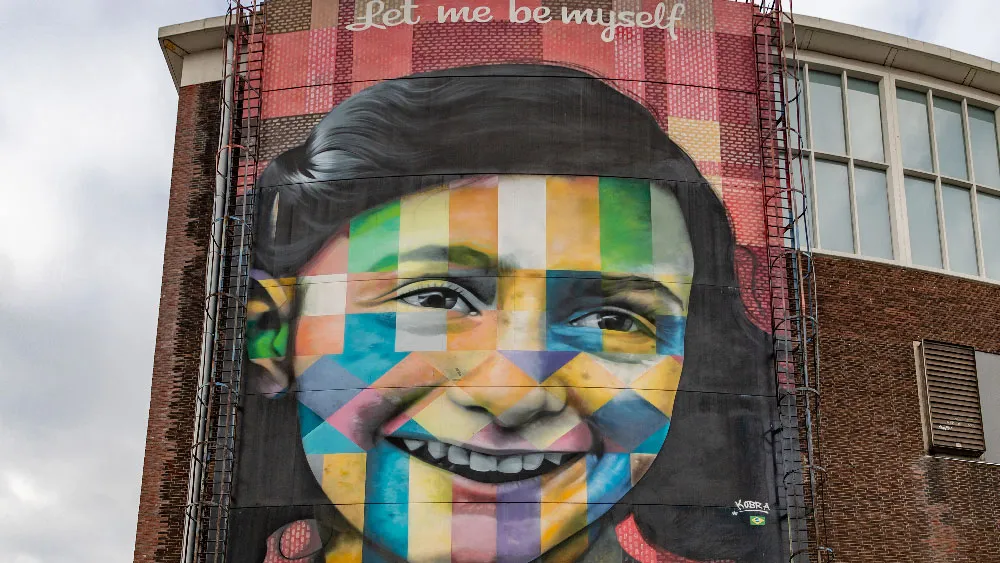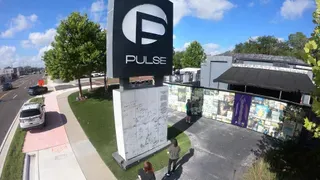February 6, 2014
SF Protest to Mark Sochi Games
Kilian Melloy READ TIME: 6 MIN.
The Winter Olympic Games open this week in Sochi, Russia with a worldwide audience expected to be focused as much on who will make a politically charged stand as who will win medals.
Protests of Russia's anti-gay laws are planned in San Francisco and other cities around the globe. With millions of dollars of sponsorship money from the likes of Coca-Cola and McDonald's on the line and NBC television cameras trained on every medal ceremony, the anticipation for many LGBT and allied viewers will be for an athlete - any athlete - to test the line between sports and politics and publicly denounce Russian laws aimed at rendering LGBT individuals invisible.
Russia has spent $51 billion in infrastructure upgrades and operational costs for the event - more than the cost of any previous Summer or Winter Olympics. Concerns over potential regional Islamic terrorism have the country on full military alert, with warships and drone aircraft deployed along with tens of thousands of military and police personnel. Competition begins Thursday (February 6), with men's figure skating, women's moguls and men's snowboarding - the first time Winter Olympics competition has started before the opening ceremonies, which are Friday, February 7.
Activists plan to picket outside the Russian consulate, 2790 Green Street in San Francisco from noon to 1 p.m. Friday. Team San Francisco will sponsor a "virtual Pride House," one of many around the world, at HiTops bar, 2247 Market Street, during the opening ceremonies, while sign-waving is expected at Harvey Milk Plaza beginning at 5 p.m.
A rally is planned for Saturday, February 8, from 11 a.m. to 1 p.m. at UN Plaza, organized by the Freedom Socialist Party.
Also that Saturday, the quadrennial Rainbow Run, which takes place in the cities that have hosted previous Gay Games, will begin at 9:15 a.m. at Stow Lake and run through Golden Gate Park, with a stop at the National AIDS Memorial Grove. Several of the participants plan to continue the run to the rally at UN Plaza. Earlier this week, the Commonwealth Club held a discussion entitled "From Russia Without Love: The 2014 Winter Olympics and Human Rights in Russia."
Neighbors walked their dogs past LGBT activists picketing in front of the Russian Consulate in San Francisco last August opposing the gay propaganda ban in that country.(Photo: Rick Gerharter)
Such demonstrations and discussions would not be allowed in Russia, where reports of unprosecuted gay-bashing are on the rise. Last year, Russia passed a law outlawing any "propaganda" of "non-traditional sexual relationships," which the government has interpreted to include anything neutral or positive about LGBT issues. Arrests have been reported, including one protester who was carrying a sign that said, "Gay is Normal." Pride Houses, which have been held as welcoming havens at previous Winter and Summer Olympics, have been specifically banned in Sochi.
Russian President Vladimir Putin has said the law is designed to "protect children" and has linked homosexuality to pedophilia. He said Russia does not discriminate against LGBT individuals. Currently the country is considering a law to remove children from households with gay or lesbian parents, and it is believed this would be applied to Russian children being adopted by anyone living in a country that recognizes same-sex marriage.
IOC's Mixed Messages
Although the Russian law is triggering the protests, targets also include the International Olympic Committee, Olympic sponsors, and NBC, which has exclusive broadcast rights to the games in the U.S.
The Olympic Charter includes a section, Principle 6, which disallows discrimination of any kind. It does not mention sexual orientation specifically, but IOC President Thomas Bach has said, "Sexual orientation is included in the charter - whether you name it expressly or not is more symbolic an issue. It doesn't change the legal quality."
But IOC officials have warned athletes and coaches against making any "political" statement and urged them to "respect" the Russian laws that ban expression. At the world track championship in the country last August, high jumper Emma Green Tregaro painted her fingernails in rainbow colors in support of gay rights. She was pressured to replace the rainbow with a uniform red polish.
Bach and the IOC have spent the past few months saying they have been assured by the Russian government that there will be no discrimination at the Winter Olympics while simultaneously warning athletes and coaches that they will not tolerate any political posturing on the medal podiums. What is not clear is what will happen if and when any athletes choose to speak out on LGBT issues at the event news conferences. And initiatives, such as the Principle 6 campaign, have been launched to pressure the IOC and its members not to stage future events in countries with discriminatory laws. Snowboarder Belle Brockhoff and alpine skier Mike Janyk are among the Sochi-bound Olympians who have joined the campaign.
Backlash at Corporate Sponsors
Major corporate sponsors have already seen a backlash. Coca-Cola had a campaign in which people could create digital versions of personalized Olympic Coke cans with their names on it. The marketing campaign triggered protests when it was discovered that the word "Gay" could not be used (the site gave a message saying it would "pretend" that word hadn't really been typed, even if it was somebody's name) but did allow the word "Straight." Coke subsequently shut down the campaign.
Queer Nation New York took a shot at Coke by re-editing its famous commercial "I Want to Teach the World to Sing" to play the song while showing images of Russian protesters being beaten. Aiming at another sponsor, Visa, Queer Nation posted a photograph online with the caption of some of those protesters being arrested with the caption, "Use @Visa for your bail!"
McDonald's had been using the Twitter hashtag #CheersToSochi to send encouragement to Olympic athletes, but activists hijacked it to take shots at the corporation. "Hey, @McDonalds: You're sending #CheersToSochi while goons wearing Olympic uniforms assault LGBT people," author Dan Savage tweeted.
Media observers will be paying particular attention to how NBC handles the controversy. The network has been criticized for its Disneyesque sensibilities in past Olympics - for the Beijing Olympics in 2008, the network showed athletes hugging and kissing family members and friends but shied away from showing gold medal diver Matthew Mitcham kissing his boyfriend - and has said it would only cover the protest issues if they became relevant news.
NBC may get away with not covering the news that isn't visible in Sochi - German President Joachim Gauck has attended Olympics before but is virulently against the Russian regime and is one of many state dignitaries who will skip the Winter Games, as will President Barack Obama - but will have more difficulty ignoring the patently visible news. That will begin at the opening ceremonies, where the official U.S. delegation will include gay skating champion Brian Boitano and out hockey medalist Caitlin Cahow. (The White House announced Wednesday that tennis legend Billie Jean King would not be going due to an illness in her family.) And the State Department produced a one-minute video of support for all of its athletes, which it said "showcases U.S. Olympians, Paralympians, and recreational athletes of various backgrounds, including gender, race and ethnicity, religion, sexual orientation, and abilities."
Symbolic Gestures
Kissing, hand-holding, words, rainbows - all are symbolic gestures that may appear in Sochi. Canadian long track speed skater Denny Morrison, a gold medalist four years ago in Vancouver, is one athlete who has said he will speak up. Morrison, who is straight, is being sponsored by Calgary gay nightclub Twisted Element. Morrison says the very kind of access to conversation and information that is now outlawed in Russia made it possible for him to learn and accept others.
"The people who know me and some of the friends I've lost, they might see this and think, 'How is that even possible?'" Morrison said. "It would be interesting to have a conversation with them and half-apologize and half tell them, 'I really feel differently about you now, because I've educated myself on the subject.'"
In January, Sochi Mayor Anatoly Pakhomov told BBC there were no gays living in the resort city, which features several gay bars. Apparently the Russians aren't taking any chances: a gay dating website, Hunters, has been blocked in Sochi and some 72,000 user profiles deleted, the site's founder told towleroad.com. People attempting to use the site, which is similar to Grindr, saw an anonymous warning that read "You will be arrested and jailed for gay propaganda in Sochi according to Russian Federal Law 135 Sektion 6."
Saying that he was in the process of trying to move his servers out of Russia to get around the problem, the founder, identified only as Dmitry T., added, "I urge the entire gay community and all of those who consider the Internet to be a free zone to boycott not only Russian vodka but also everything that is linked to the Olympics and not to buy any Olympic souvenirs."
Kilian Melloy serves as EDGE Media Network's Associate Arts Editor and Staff Contributor. His professional memberships include the National Lesbian & Gay Journalists Association, the Boston Online Film Critics Association, The Gay and Lesbian Entertainment Critics Association, and the Boston Theater Critics Association's Elliot Norton Awards Committee.



